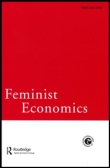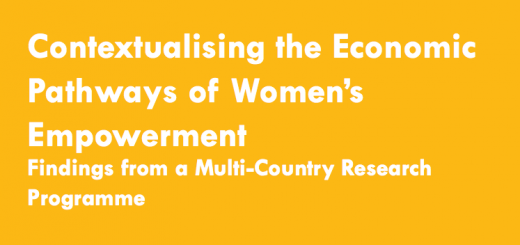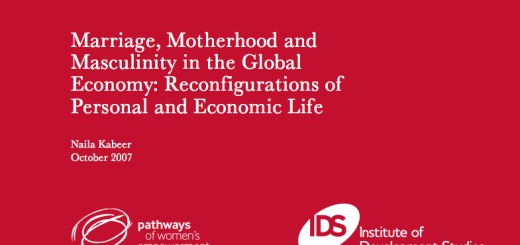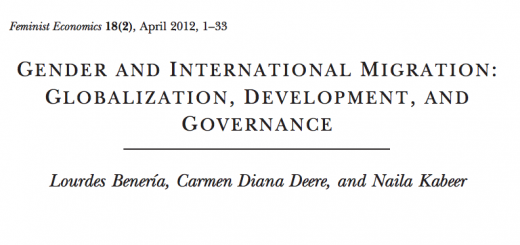Globalisation, Labour Standards and Women’s Rights: Dilemmas of Collective (In)action in an Interdependent World’ , Feminist Economics
 This paper challenges the idea that a “social clause” to enforce global labor standards through international trade agreements serves the interests of women export workers in poor countries. Drawing on fieldwork in Bangladesh and empirical studies, the author argues that exploitative as these jobs appear to Western reformers, for many women workers in the South they represent genuine opportunities. Clearly, these women would wish to better their working conditions; yet having no social safety net, and knowing that jobs in the informal economy, their only alternative, offer far worse prospects, women cannot fight for better conditions. Moreover, global efforts to enforce labor standards through trade sanctions may lead to declining employment or to the transfer of jobs to the informal economy. Lacking measures that also address the conditions of workers in this informal economy, demands for “the social clause” will reinforce, and may exacerbate, social inequalities in the labor market.
This paper challenges the idea that a “social clause” to enforce global labor standards through international trade agreements serves the interests of women export workers in poor countries. Drawing on fieldwork in Bangladesh and empirical studies, the author argues that exploitative as these jobs appear to Western reformers, for many women workers in the South they represent genuine opportunities. Clearly, these women would wish to better their working conditions; yet having no social safety net, and knowing that jobs in the informal economy, their only alternative, offer far worse prospects, women cannot fight for better conditions. Moreover, global efforts to enforce labor standards through trade sanctions may lead to declining employment or to the transfer of jobs to the informal economy. Lacking measures that also address the conditions of workers in this informal economy, demands for “the social clause” will reinforce, and may exacerbate, social inequalities in the labor market.
http://www.tandfonline.com/doi/abs/10.1080/1354570042000198227



